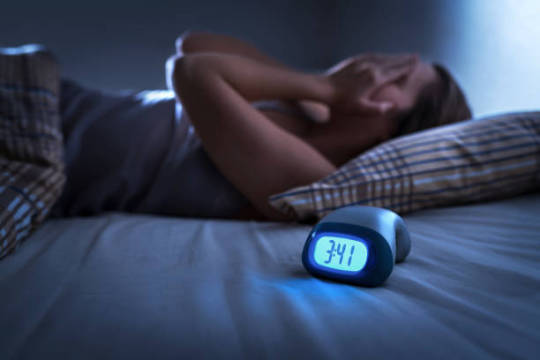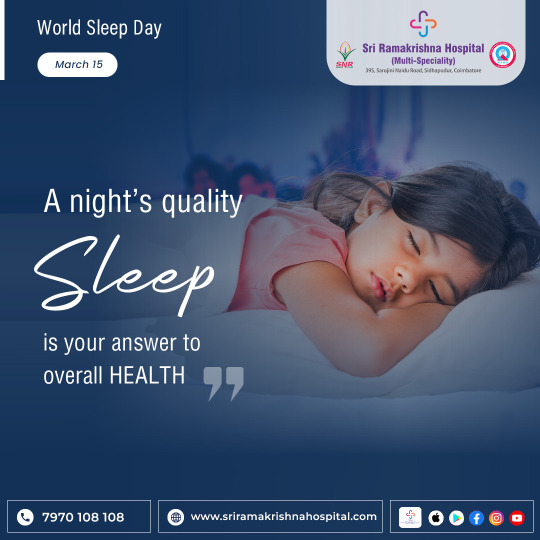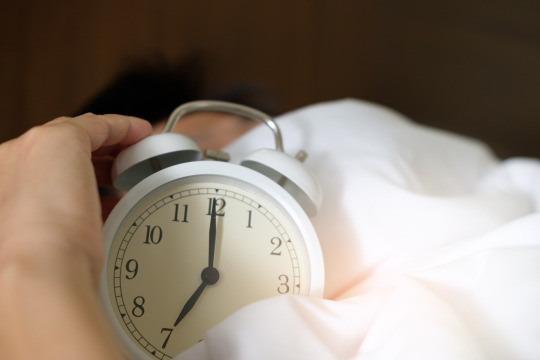#SleepDisorder
Text
I'm not saying I'm addicted to caffeine, but I do keep a jar of instant coffee next to my bed in case I need a quick fix in the middle of the night.
#SleepDisorder#CoffeeAddict#CaffeineFix#InsomniaLife#BedsideBrew#CoffeeHumor#SleepDeprived#JavaJunkie#InstantCoffee#SleeplessInSeattle#NightOwl#MidnightSnack#EarlyMorningGrind#BedsideTable#AddictedToCoffee#SleeplessNights#CoffeeIsLife#EarlyBird#NightShiftWorker
6 notes
·
View notes
Text
How Ayurveda Help Treat Alopecia
Alopecia or hair loss, in Ayurveda, is viewed as a manifestation of imbalances within the body, which can result from factors such as poor diet, stress, hormonal fluctuations, or environmental influences. The Ayurvedic treatment for hair loss is intricately tailored to address the unique constitution and underlying imbalances of the individual. This personalized approach underscores the fundamental principle of restoring harmony within the body rather than merely suppressing symptoms. Besides, Ayurvedic diagnosis considers not just the symptoms but also the individual's constitution (Prakriti) and current imbalances (Vikriti), enabling tailored treatment strategies that address the root cause of alopecia.
Let's have a look at some of the common Ayurvedic remedies for hair loss.
1. Bhringraj (Eclipta alba)
Bhringraj possesses properties that strengthen hair follicles and prevent hair breakage and premature shedding. Its rich content of proteins, vitamins, and minerals nourishes the hair shaft, making it stronger, thicker, and more resilient to damage. Regular use of Bhringraj oil or supplements can thus help minimize hair fall and promote the growth of healthy, vibrant hair. In addition, Bhringraj supplements can also be consumed orally to complement its benefits for hair health. When taken internally, Bhringraj helps address underlying imbalances that may contribute to hair loss, such as stress, hormonal fluctuations, and nutritional deficiencies. Its adaptogenic properties aid in restoring balance to the body, supporting overall well-being and promoting healthy hair growth from within.
2. Amla (Emblica officinalis)
Amla or Indian Gooseberry is rich in vitamin C and the regular consumption of fresh Amla fruit or its juice provides a potent source of essential nutrients for hair health. Incorporating Amla into your diet helps nourish the scalp from within, providing the necessary building blocks for strong and lustrous hair growth. Moreover, Amla's high antioxidant content helps protect hair follicles from oxidative stress and environmental aggressors, mitigating factors that contribute to hair fall and premature hair loss.
3. Brahmi (Bacopa monnieri)
Chronic stress can disrupt hormonal balance, leading to conditions such as alopecia areata, where the immune system attacks hair follicles. By calming the mind and alleviating stress, Brahmi helps restore hormonal equilibrium and mitigate the underlying factors contributing to hair loss. Brahmi can be utilized topically in various forms for promoting hair health. Furthermore, Brahmi oil, prepared by infusing Brahmi leaves or powder into a carrier oil, is commonly used as a scalp treatment. Speaking of which, massaging Brahmi oil into the scalp nourishes hair follicles, improves blood circulation, and delivers vital nutrients directly to the roots. This not only strengthens the hair from within but also enhances scalp health, reducing inflammation and irritation that may impede hair growth.
4. Neem (Azadirachta indica)
Neem oil, extracted from Neem seeds, serves as a potent topical remedy for treating scalp infections and nourishing hair follicles. When applied to the scalp, Neem oil penetrates deep into the skin layers, exerting its antimicrobial effects and promoting a healthy scalp environment. Regular use of Neem oil helps eliminate bacteria and fungi, reduce inflammation, and soothe irritated skin, thereby creating optimal conditions for hair growth. Moreover, Neem's antiseptic properties help prevent bacterial and fungal overgrowth on the scalp, reducing the risk of recurring infections and maintaining scalp health in the long term.
5. Ashwagandha (Withania somnifera)
Ashwagandha supports hair health by modulating the body's stress response and reducing cortisol levels, promoting a sense of calm and relaxation. By incorporating Ashwagandha into your daily regimen, you can help manage stress levels and promote emotional well-being, ultimately supporting optimal hair health from within. Also, consuming Ashwagandha supplements or Ashwagandha tea provides a convenient and effective means of harnessing its stress-relieving benefits. Ashwagandha supplements are available in various forms, including capsules, powders, and liquid extracts, allowing for flexible and personalized dosing options.
6. Coconut Oil
Coconut oil is a popular Ayurvedic remedy for hair care, known for its nourishing and moisturizing properties. Moreover, coconut oil's unique composition of fatty acids, including lauric acid, capric acid, and caprylic acid, provides deep hydration and nourishment to the hair and scalp. These fatty acids help seal moisture into the hair shaft, preventing dryness, brittleness, and breakage. Regular use of coconut oil as a scalp massage oil or hair treatment can help restore moisture balance, enhance hair elasticity, and reduce the risk of split ends and breakage.
7. Aloe Vera
Aloe vera's anti-inflammatory properties help calm irritation, reduce redness, and alleviate itching, making it particularly beneficial for individuals dealing with scalp conditions such as dandruff, eczema, or psoriasis. By soothing the scalp, aloe vera creates an optimal environment for hair follicles to thrive and promotes a healthier scalp microbiome, which is essential for optimal hair growth. Additionally, regular application of aloe vera gel directly to the scalp or incorporation into hair masks helps restore moisture balance, leaving the scalp hydrated, nourished, and revitalized.
8. Dietary Modifications
In Ayurveda, diet plays a crucial role in promoting hair health. Hence, consuming a balanced diet rich in vitamins, minerals, and proteins is essential for nourishing hair follicles and promoting hair growth. Foods such as leafy greens, nuts, seeds, whole grains, and lean proteins should be incorporated into the diet for optimal hair health. In addition to these nutrient-rich foods, it's important to stay hydrated by drinking plenty of water throughout the day as proper hydration helps maintain the elasticity of the hair and prevents dryness and brittleness.
Conclusion
The diverse array of Ayurvedic remedies for Alopecia, including herbs like Bhringraj, Amla, Brahmi, Neem, and Ashwagandha, provide multifaceted support for nourishing the scalp, strengthening hair follicles, and restoring balance to the body's doshas. Moreover, Ayurveda emphasizes the importance of dietary modifications, encouraging the consumption of nutrient-rich foods to support optimal hair health from the inside out. All in all, by embracing the holistic principles of Ayurveda and integrating its time-tested remedies into your daily life, you can cultivate a deeper understanding of your hair health and empower yourself to embark on a journey toward optimal well-being. However, make sure to approach an expert Ayurvedic practitioner to get a personalized experience and better results.
1 note
·
View note
Text
Understanding Sleep Disorders: A Comprehensive Guide

Sleep disorders are a prevalent concern affecting millions worldwide, significantly impacting an individual's quality of life. These disorders can range from common issues like insomnia to more complex conditions such as sleep apnea and narcolepsy. This article aims to provide a detailed overview of sleep disorders, their types, symptoms, causes, and effective treatment options.
Types of Sleep Disorders
Several types of sleep disorders exist, each with unique characteristics and impacts on health. The most common include:
Insomnia: Difficulty falling asleep or staying asleep.
Sleep Apnea: Interrupted breathing during sleep.
Restless Legs Syndrome (RLS): An irresistible urge to move the legs.
Narcolepsy: Excessive daytime sleepiness and sudden sleep attacks.
Symptoms of Sleep Disorders
Recognizing the symptoms of sleep disorders is crucial for timely diagnosis and treatment. Common signs include:
Persistent difficulty in falling or staying asleep
Frequent awakenings during the night
Daytime fatigue and sleepiness
Loud snoring accompanied by pauses in breathing (sleep apnea)
Sudden muscle weakness (narcolepsy)
Causes of Sleep Disorders
The causes of sleep disorders are varied and can include lifestyle factors, medical conditions, and psychological issues. Key contributors include:
Stress and anxiety: High levels of stress can significantly affect sleep quality.
Medical conditions: Disorders like asthma, chronic pain, and acid reflux can disrupt sleep.
Neurological disorders: Conditions such as Parkinson's disease and Alzheimer's disease can lead to sleep issues.
Lifestyle choices: Poor sleep hygiene, irregular sleep schedules, and substance abuse can all contribute to sleep disorders.
Treatment Options for Sleep Disorders
Treatment for sleep disorders depends on the specific type and underlying cause. Common approaches include:
Behavioral and lifestyle changes: Establishing a regular sleep schedule, practicing relaxation techniques, and improving sleep environment.
Medication: Prescription sleep aids or treatments for underlying medical conditions affecting sleep.
Continuous Positive Airway Pressure (CPAP) therapy: For sleep apnea, a machine that provides a steady stream of air through a mask to keep the airway open during sleep.
Surgery: In cases where sleep apnea is caused by anatomical obstructions.
Preventing Sleep Disorders
Prevention is often the best cure. To minimize the risk of developing sleep disorders, consider the following tips:
Maintain a regular sleep schedule: Go to bed and wake up at the same time every day, even on weekends.
Create a restful sleeping environment: Ensure your bedroom is quiet, dark, and at a comfortable temperature.
Limit exposure to screens before bedtime: The blue light emitted by phones, tablets, and computers can disrupt your body's natural sleep-wake cycle.
Exercise regularly: But avoid vigorous activity close to bedtime.
Limit caffeine and alcohol intake: Especially in the hours leading up to bedtime.
When to Seek Professional Help
If sleep disturbances persist despite self-help measures, it may be time to consult a healthcare professional. Signs that it's time to seek help include:
Sleep issues persisting for longer than a few weeks
Daytime fatigue significantly impacting daily life
Loud snoring, especially if accompanied by gasping or pauses in breathing
Uncontrollable movements or sensations in the legs at night
Conclusion
Sleep disorders can have a profound impact on an individual's physical health, emotional well-being, and overall quality of life. Understanding the types, symptoms, causes, and treatments is crucial for anyone affected by these conditions. By adopting healthy sleep habits and seeking professional advice when necessary, it is possible to improve sleep quality and overcome the challenges posed by sleep disorders.
0 notes
Text
World Sleep Day

Happy #WorldSleepDay Today, let's celebrate the restorative power of sleep and its profound impact on our health. From improving immune function to enhancing mood, prioritizing quality sleep is essential for overall well-being. Let's commit to healthy sleep habits for a brighter, more energized tomorrow. 💫😴
Learn more>> https://www.sriramakrishnahospital.com/
#sleepdisorder#psychiatry#sriramakrishnahospital#coimbatore#healthcare#multispecialityhospital#healthandwellness#medical#patientcare#bookyourappointment
0 notes
Photo

Unlocking the Secrets of Sleep: Why It Matters More Than You Realize | CeBoz.com
Discover the surprising impact of quality sleep on your health and well-being.
0 notes
Text
In what cases CPAP Therapy is required?
As per CPAP or BIPAP machine for rent in Delhi NCR, When someone has obstructive sleep apnea (OSA), they are usually prescribed Continuous Positive Airway Pressure (CPAP) therapy. The hallmark of OSA is recurrent breathing pauses during sleep, which are brought on by upper airway collapse. In order to keep the airway from closing and to guarantee a constant flow of oxygen, CPAP therapy uses a machine that continuously and steadily supplies air through a mask. For people who suffer from severe snoring, weariness throughout the day, and breathing difficulties when they sleep, CPAP is necessary. As per CPAP or BIPAP machine for rent in Delhi NCR, It is a very successful non-invasive treatment to lessen the signs and symptoms of sleep apnea, enhance the quality of sleep, and lower the risks of related health problems like heart problems and excessive daytime sleepiness.
Visit: https://wellsleepsolution.com/
Instagram: https://www.instagram.com/well_sleep_solution/
Twitter: https://twitter.com/WellSleep_Delhi
Medium: https://medium.com/@polysomnography.test
Tumbler: https://www.tumblr.com/blog/sleep-study-test-delhi
YouTube: https://www.youtube.com/channel/UC1deNLTKSMWTS_UKT6nZrpw
0 notes
Text

Sleep apnea is a sleep disorder characterized by repetitive pauses in breathing during slumber. Common symptoms include loud snoring, abrupt awakenings accompanied by choking or gasping, excessive daytime sleepiness, morning headaches, difficulty concentrating, irritability, and impaired memory. Left untreated, it can lead to serious health issues like heart disease and hypertension.
To learn more about sleep apnea, you can contact Dr Sam Harouni to know more.
0 notes
Text
Is 6 Hours of Sleep Enough for Your Health?
youtube
#sleep#sleepdeprivation#lackofsleep#howmuchsleepdoineed#sleeptips#sleephygiene#insomnia#naps#sleepdisorder#HealthyHabits#SleepBetter#SleepAwareness#QualitySleep#OptimalHealth#SleepImpact#HealthAndWellness#RestfulNights#SleepWell#SleepBenefits#SleepResearch#SleepInsights#SleepStrategies#SleepWellness#BetterSleep#WellnessTips#HealthTips#HealthyLifestyle#SleepRoutine#SleepCycles#Youtube
0 notes
Text
Sleep apnea
Sleep Apnea: An Unseen Threat to Healthy Sleep
I. Introduction
Sleep apnea is a serious sleep disorder that occurs when a person’s breathing is interrupted during sleep. This condition can lead to numerous health problems if left untreated, as the body and brain may not get enough oxygen. It’s a common yet often undiagnosed condition, affecting millions of people worldwide.
According to the…

View On WordPress
#BetterSleep#CPAPtherapy#SleepApneaAwareness#SleepApneaAwarenessMonth#SleepApneaSolutions#SleepApneaSupport#SleepApneaTreatment#SleepDisorder
0 notes
Text
Dentist
"Dentistry is more of an art than a science, more subjective than objective, resulting in wide variations in clinical judgements and interventions between dental practitioners."
Robert L. Caplin, British Dental Journal volume 230, pages337–343 (2021)
Ref: https://www.nature.com/articles/s41415-021-2726-4
During my dentist last visit to Japan, his colleague treated a Cerebral Palsy patient with tooth issues by carefully examining their body & providing PNF (Proprioceptive Neuromuscular Facilitation) & massage treatment.
PNF could be beneficial for other patients with postural imbalance issues that may be connected to dental problems. It's recommended to seek a doctor who can provide a full diagnosis & a holistic approach rather than just treating the symptoms.
Prosthodontist issue:
TMD (Temporomandibular disoders / Bruxism) TMJ teeth, muscles, joint
The jaw joint never rest, working 24 hours.
Temporary Solution: custom splint, adjustment needed every now and then. Some exercise and massage needed. However, it’s incurable disease, long life maintenance with hope it’s getting better w the given tool.
In relation to Sleep disorder & dental patient : Snoring & OSA Obstructive Sleep Apnea
Sleeping Cycle:
-Non REM sleep 80%
-Quiet sleep
-Light sleep
-REM deep sleep
Help to prevent snoring:
-No alcohol or sleeping pills before bed
-Maintain Ideal body weight
-Sleep in side ways
Key factor of OSA:
In relation with breathing muscle & upper airway, abnormal anatomy airway, obesity, pathophysiology.
Sleep related Breathing disorders
Test using PSG polysomnography
OSA complication:
-Cardiovascular: Coronary, heart, stroke, sudden death, hypertension.
-Exhausted & Sleepiness during daytime: accident, emotional, depression, low memory & coordination, headache, impotency
-Gherlin hormon (hunger hormone)
-Complication:
Pregnancy complication, eye (glaucoma), bladder peeing at night, diabetes, metabolism syndrome, fatty liver, chronic obstructive, pulmonary, & gerd.
Solution: Oral Medication, Operation, Device (CPAP/ MAD/ DSA/ OA/ MAS/ MRA)
I’m grateful for the gift of the day : a Jap toothbrush from the kind & passionate half Japanese orthodontist who carefully examined my issues without asking for money since he couldn't fix them. He honestly admitted that it's not his specialty, but he still discussed the matters with me & helped me find solutions alongside other professional dentists. I truly appreciate his sincerity, guidance, & patience. Looking forward for some improvement in 3 months. Btw, Japanese toothbrushes are the best!
Over the past decade, I have encountered numerous dentists specializing in various fields. However, the most valuable lessons came from a young friend who had just graduated from UI at the time, specialized in Prosthodontics. Surprisingly, she turned out to be the youngest & brightest dentist I had ever met. She tirelessly guided me & referred me to other specialists, patiently supporting me throughout the journey. I’m truly grateful for her TLC, she is a real unsung hero.
The 3 dentists I mentioned share a common trait: they genuinely listen to their patients & collaborate with them to find solutions, which builds trust through a holistic approach by diagnosing the root cause rather than just treating symptoms. They’re truly passionate about their work & prioritize patient well-being over monetary gains. They also welcome my endless Q without feeling insecure, leading to great discussions where we learn from each other. Such person is truly a gem. 💎
Further reading:
Book by Prof drg. Laura Susanti Himawan, Sp.Pros(K)., FICD
(only in Bahasa Indonesia)
1. Memahami Gejala, Penyebab, Serta Kiat Mencegah & Mengatasi Gangguan Sendi Rahang TMD (Temporomandibular Disorders)
2. Peran dokter gigi atasi gangguan Ngorok & OSA (Obstructive Sleep Apnea)
Additional Note:
It has been a frustrating experience to have certain pain and unknown diagnose of the core problems. Currently I am still trying the available method that has been suggested by the 3 dentists above. I've tried so many dentist in the past apart from the dentist I mentioned above, it was a waste of time and money, but one thing for sure, the tooth trauma and damaged can't be undone.
In summary, there is no such perfect doctor, doctor has their own speciality and way to approach your problems. But I do believe on holistic approach doctor who can help you to see the big picture (full diagnose, not just a symptoms) and pivoting to the solution. To find a suitable doctor for your tailor made case is almost similar to find a suitor. Find what's best available in your area and budgeting accordingly. For instance, Overseas dentist is not up to my budget due to the long term maintenance.
Hope you all healthy and well.
#dentist#tooth#doctor#health#hollistic#hollistichealth#pnf#osa#sleepdisorder#tmd#bruxism#grinding#orthodontist#Prosthodontist#specialist#dentistry#art#science
0 notes
Video
youtube
Is Sleeping During the Day Instead of Night a Bad Thing?
The topic of whether sleeping during the day instead of at night is detrimental has been a subject of persistent debate. While there are certainly advantages to nighttime sleep, such as aligning with our natural circadian rhythm and ensuring social conformity, daytime sleeping can also yield several benefits. Shift work, for instance, often demands adjusting sleeping patterns, and individuals who effectively nap during the day have been shown to enhance their cognitive capabilities, minimize fatigue, and improve overall job performance. Thus, instead of outright dismissing daytime sleep, it is essential to recognize its potential advantages, particularly in specific contexts, making it a valuable alternative to traditional nocturnal sleep patterns.
#youtube#shorts#short#shortvideo#sleep#sleeping#sleepdisorder#circadianrhythm#daytime#night#nighttime#bedtime#sleepcycle#nap#insomnia#sleeptime
0 notes
Text
Sleep and weight loss are two crucial aspects of our lives that significantly impact our overall well-being and health. While they may seem unrelated, there is a strong connection between the two. In this article, we will discuss the importance of sleep and weight loss and how they are interconnected.
Energy Balance:
Sleep plays a vital role in maintaining a healthy weight by regulating our energy balance. Sufficient sleep helps to maintain a balance between the calories consumed and the calories expended. When we lack sleep, our body's hormonal balance is disrupted, leading to increased hunger and cravings, particularly for high-calorie and unhealthy foods. This can result in overeating and weight gain. On the other hand, when we get enough sleep, our hormones, such as leptin and ghrelin, which regulate appetite, are better balanced, reducing the likelihood of overeating.
Metabolism and Insulin Sensitivity:
Adequate sleep is essential for a healthy metabolism. Poor sleep quality or insufficient sleep can disrupt our metabolic processes, leading to decreased insulin sensitivity. This can increase the risk of developing insulin resistance, which is closely associated with obesity and type 2 diabetes. Moreover, inadequate sleep can negatively affect the metabolism of carbohydrates, leading to higher blood sugar levels and increased fat storage.
Muscle Recovery and Physical Activity:
Sleep is crucial for muscle recovery and repair. During sleep, our body releases growth hormone, which aids in muscle growth, repair, and recovery from exercise. Sufficient sleep ensures that our muscles have the opportunity to heal and strengthen properly. This, in turn, enhances our physical performance and increases our ability to engage in regular physical activity. Regular exercise is crucial for weight loss and weight maintenance, as it helps to burn calories and build lean muscle mass.
Stress and Emotional Eating:
Sleep deprivation can increase stress levels, making it harder to cope with daily challenges and triggering emotional eating. When we are tired, we are more likely to reach for comfort foods that are high in calories, sugar, and unhealthy fats. These foods provide temporary relief but can contribute to weight gain in the long run. By prioritizing sleep, we can better manage stress and reduce the likelihood of relying on food as a coping mechanism.
Hormonal Regulation:
Sleep plays a critical role in regulating our hormonal system. Chronic sleep deprivation can disrupt the delicate balance of hormones in our body, leading to imbalances that promote weight gain. For example, lack of sleep can increase the production of cortisol, a stress hormone that is associated with weight gain, particularly around the abdominal area. Additionally, insufficient sleep can lead to decreased levels of growth hormone, which helps to maintain lean muscle mass and regulate fat metabolism.
In conclusion, sleep and weight loss are intertwined and have a significant impact on our overall health and well-being. Prioritizing sufficient and quality sleep is crucial for maintaining a healthy weight, as it influences our energy balance, metabolism, muscle recovery, physical activity, stress management, and hormonal regulation. By recognizing the importance of sleep in our weight loss journey and implementing healthy sleep habits, we can optimize our chances of achieving and maintaining a healthy weight and improving our overall quality of life.
#weighloss#fitness#weightlossjourney#healthy#motivation#fit#healthyfood#diet#nutrition#workout#gym#weightloss#fitnessmotivation#health#healthylifestyle#sleepdisorder#sleep#sleepbetter#insomnia#sleeping#sleepapnea#stopsnoring#bettersleep#cpapmask#cpap#anxiety#snoring#snore#goodsleep#healthysleep
0 notes
Text
Effects of Sleep Disorder
தூக்கமின்மையால் உடலுக்கு என்ன பாதிப்புகள் வரக்கூடும்? இரவில் தூக்கம் தடைப்படுவதற்கான காரணமும் அதற்கான தீர்வும் | SLEEP DISORDER
முழு வீ���ியோவை பார்க்க : https://youtu.be/A5lM_dwQh4Y
youtube
#sriramakrishnahospital#sleepdisorder#psychiatry#healthcare#coimbatore#multispecialityhospital#healthandwellness#hospital#patientcare#bookyourappointment#Youtube
0 notes
Link
#somnambulism#sleepdisorder#nightterrors#causesofsleepwalking#howtostopsleepwalking#safetytipsforsleepwalkers#Sleepwalking#SleepwalkingCauses#SleepwalkingTreatment#SleepwalkingFacts#SleepwalkingTips#SleepwalkingStories#SleepwalkingExperiences#SleepwalkingInAdults#SleepwalkingInChildren#SleepwalkingDangers#SleepwalkingPrevention#SleepwalkingDiagnosis#SleepwalkingResearch#SleepwalkingBehavior#SleepDisorders#SleepWalking#NighttimeActivities#SleepAwareness#SleepHealth#SleepScience#SleepingDisorders#DreamingWhileAwake#SleepParalysis#SleepingBehavior
0 notes
Text
youtube
Biooptimizers Review: Best Sleep Supplements, Fall Asleep in Minutes & Unlock Sleep Superpower
#fallbackasleep#strugglestofallasleep#magnesiumsupplements#sleepsupplements#Sleepdisorder#melatoninsupplements#producemelatoninnaturally#Fallasleepinminutes#sleepdeprivation#sleepsuperpowers#highqualitysleep#howtofallasleepfaster#sleepworry#howtotreatinsomnia#howtofallbackasleep#sleepstruggle#sleephelp#sleepanxiety#anxioustosleep#sleepanxietyinsomnia#howtofallasleepfast#fallbackasleepfast#fallbackasleepinmiddleofnight#howtocureinsomnianaturally#howtocureinsomnia#gettingbacktosleep#Youtube
0 notes
Text
What is the best time to sleep according to sleep experts?
As per CPAP or BIPAP machine for rent in Delhi NCR, say that the idea of circadian rhythms and the body's natural sleep-wake cycle frequently serve as guidelines for the optimal time to go to bed for sleep. Circadian rhythms are changes in an organism's body, mind, and behaviour that happen about every 24 hours in response to light and dark in their surroundings. The circadian rhythm is a major modulator of the sleep-wake cycle.
The following recommendations are typically made by experts for the best possible sleep:
Even on the weekends, go to bed and wake up at the same time every day. This aids in the internal clock regulation of your body.
For optimum health and wellbeing, most adults require 7-9 hours of sleep per night. Individuals may have different sleep needs, though.

As per CPAP or BIPAP machine for rent in Delhi NCR, Make an effort to create a sleep-friendly atmosphere. This involves having a cold, dark room with comfy pillows and mattress, and making as little noise as possible.
Everyone agrees that rising up earlier and going to bed earlier are more in line with natural circadian cycles. Sleeping before midnight is generally seen to be more advantageous than sleeping after midnight.
Limit or stay away from nicotine and caffeine in the hours before heading towards the bedroom.
The melatonin hormone, which promotes sleep, can be inhibited by exposure to blue light from devices like computers, phones, and tablets. Limit your screen time at least one hour before going to bed.
As per CPAP or BIPAP machine for rent in Delhi NCR, During the day, exposure to natural light can aid in regulating the circadian rhythm. Take time to spend outside, particularly in the morning.
Visit: https://wellsleepsolution.com/
Instagram: https://www.instagram.com/well_sleep_solution/
Twitter: https://twitter.com/WellSleep_Delhi
Medium: https://medium.com/@polysomnography.test
Tumbler: https://www.tumblr.com/blog/sleep-study-test-delhi
YouTube:https://www.youtube.com/channel/UC1deNLTKSMWTS_UKT6nZrpw
0 notes